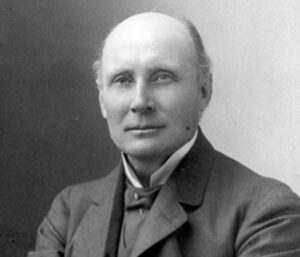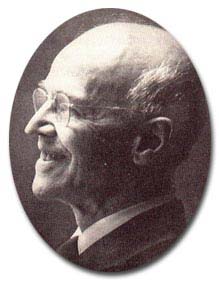The general, or popular, notion of “process” goes back at least as far as the Greek philosopher Heraclitus who declared that all things flow, and who came up with an analogy so memorable that it has become part of our common vocabulary: you can’t step into the same river twice.
Process philosophy, however, as conceived by Alfred North Whitehead, one of the most profound and original thinkers of all time, is a unique creation of our era. Whitehead’s thought is of such quality that it has been characterized as “. . . some of the most careful and elegant thinking in the history of Western philosophy.” (RE 412)

Whitehead made significant contributions not only in philosophy but also in mathematics, physics, and formal logic. When quantum physics dematerialized Newton’s billiard-ball atom into a vibrational “structure of activity,” it took a genius of Whitehead’s breadth to glimpse that such a structure could be further dematerialized into a non-substantial “unit of experience,” and to conceive the entire universe in terms of dynamic units of living process. From this new process perspective Whitehead was able to upgrade the saying of Heraclitus by making a rather startling statement. He said that “no thinker thinks twice.”
Process philosophers today, and in the 20th century, differ among themselves in how they accommodate, or oppose, the complex metaphysical system conceived and developed by Whitehead. Some, like Nicholas Rescher, try to distance themselves as much as possible from Whitehead.

Others are more intent on refining and advancing the intellectual task that Whitehead initiated.
Such a philosopher is Charles Hartshorne who independently came up with some of the same ideas he later found in Whitehead. Hartshorne originated electrifying new insights himself, clarified many process ideas, and corrected some of Whitehead’s oversights. It can hardly be overstated how much Hartshorne has done to strengthen the case for process philosophy. Among 20th-century philosophers, Hartshorne stands out as one of the premier metaphysicians and the most influential proponent of the process conception of God.

In contrast to Hartshorne, Frederick Ferré is among those in process thought who prefer to get along without introducing the notion of God into their systems.
Given all this, is there any agreement or consensus as to what constitutes the basic ideas of process philosophy. Hartshorne identifies fifteen common theses accepted by most process philosophers. David Griffin has set down what he calls the Ten Core Doctrines of Process Philosophy.
Donald Wayne Viney finds Griffin’s list laudable but problematic, and defines process philosophy in terms of four propositions:
(1) The fundamental constituents of reality are processive—involving change, motion, time, and/or contingency;
(2) Whatever is not processive is part of or grounded in what is processive. As Hartshorne argues, becoming includes being, not vice versa;
(3) Reality is social—Hartshorne has the most coherent doctrine of social relations, saying that the present moment is internally related to the past but partly externally related to the future;
(4) Value is inherent in process.

Below is a list of what I see as basic and important ideas in Whitehead’s system:
(1) the centrality of the body in human experience
(2) the idea of panexperientialism: there is experience in everything
(3) dipolarity: an essential two-foldedness that runs through all nature
(4) the two basic types of “process” in process philosophy
(5) A Holographic Universe
(6) God and the World
(7) A Kalogenic Universe (“kalogenic” means the “creation of beauty”)
I will be discussing each of these in future posts.
Key to Abbreviation
RE Cooper, Robert M. “God as Poet and Person at Prayer,” Religious Experience and Process Theology, Ed. Harry James Cargas and Bernard Lee
HyC